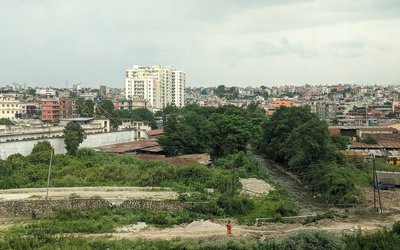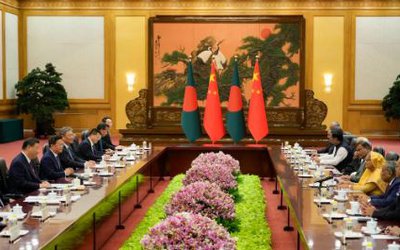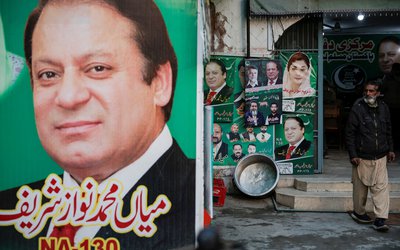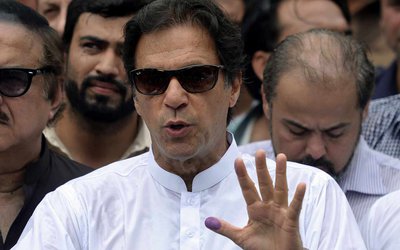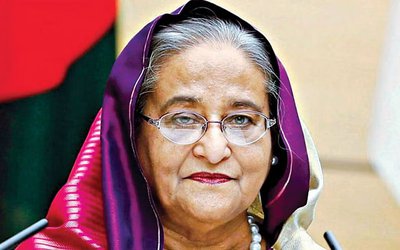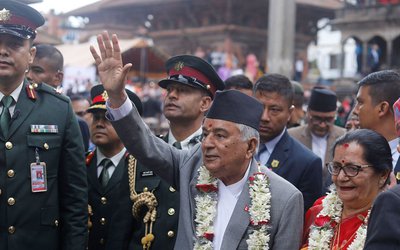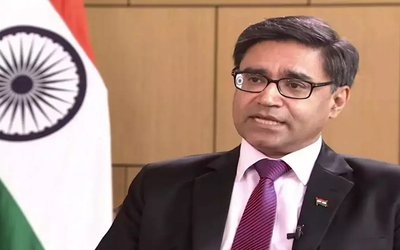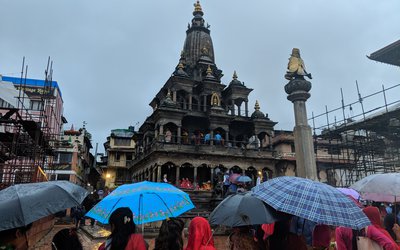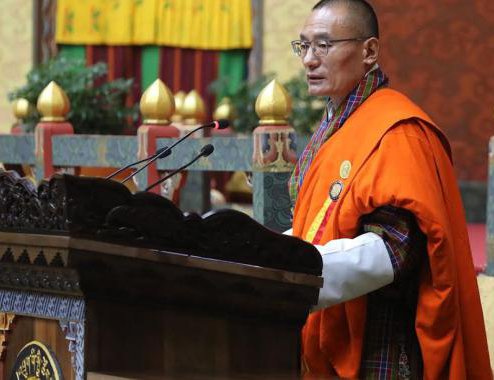
As Bhutan faces a growing challenge of skilled citizens moving abroad for work, Prime Minister Tshering Tobgay outlined the government’s commitment to boosting the economy, fostering employment, and offering competitive wages to keep talent within the country.
As Bhutan faces a growing challenge of skilled citizens moving abroad for work, Prime Minister Tshering Tobgay yesterday outlined the government’s commitment to boosting the economy, fostering employment, and offering competitive wages to keep talent within the country.
Presenting his second State of the Nation report to Parliament PM announced three key strategies to address the escalating crisis-the Gelephu Mindfulness City, the 13th Plan, and the Bhutan 21st Century Economic Roadmap. “If we leave this unaddressed, this trend threatens the very foundation of the country’s future.
It is not only the responsibility of the government, but also the responsibility of all citizens,” Lyonchhen said. Currently, about 66,000 Bhutanese, representing 8.5 percent of the population, are living overseas. Many are well-educated and skilled workers whose English prociency has facilitated their overseas employment.
While this migration offers youth new opportunities, higher earnings, and crucial remittances for families back home, the largescale departure of skilled individuals poses a serious risk to the nation’s development. “For a small developing nation like ours, a strong local workforce is critical to progress,” Lyonchhen said. “Given limited population size, the loss of human capital at this scale undermines our capacity to address key developmental challenges.”
The outward migration has already led to shortages in many local businesses, resulting in fewer customers and struggles to repay loans. This economic pressure, in turn, risks creating a cycle of further workforce loss if unaddressed, potentially slowing economic growth, affecting public services, and weakening the country’s overall development.
Despite the challenges, recent data shows some positive trends. The number of civil servants leaving their jobs has signicantly dropped from 16 percent in 2023 to 6.3 percent this year. mmission has also lled 8,788 job vacancies in 2024, restoring the civil service to full strength.
In addition, 573 Bhutanese have joined the National Reintegration Programme, with 170 having already returned home. However, many underlying economic reasons for migration remain unresolved. Lyonchhen emphasised that solving workforce migration is a top national priority.
“We must acknowledge the urgency of the situation, unite in our collective effort, and actively participate in nation-building, recognising that no external force will resolve these challenges for us,” he said. “This is not merely an economic issue, but a national duty. This requires immediate and concerted action from every citizen.”
PM also issued a direct appeal to citizens violating visa rules to leave the United States (US) voluntarily as soon as possible. He cautioned that while Bhutan upholds strict immigration laws for its security and sovereignty, the US enforces its laws similarly. “When the US authorities take legal action against those staying illegally, overstay, including detention and deportation, there may be very little the government can do to assist ” be very little the government can do to assist.
Strategies to tackle the issue To counter the outow of young Bhutanese seeking better opportunities abroad, the government has identied three main strategies: Gelephu Mindfulness City (GMC), the 13th Plan, and the Bhutan 21st Century Economic Roadmap. Lyonchhen hailed the GMC project, stating its tremendous admiration globally and domestically.
“The GMC recruitment drive has seen unprecedented interest from Bhutanese citizens, both at home and abroad, reecting the faith and condence the people place in His Majesty’s vision,” he said. The 13th Plan boasts a total budget of Nu 512 billion, including Nu 245 billion for capital spending. The government has also launched an Economic Stimulus Programme (ESP) to boost local production, support new businesses, create more jobs, and attract tourists.
Bhutanese PM said that efforts are underway to attract Nu 500 billion in foreign direct investments (FDI) to further invigorate the economy. “The successful execution and realisation of the unprecedented 13th Plan, the ESP, and the anticipated FDI will not only enhance our economy signicantly, but also create meaningful employment opportunities for our youth,” he added. Bhutan’s 21st Century Economic Roadmap–the 10X National Economic Vision aims to accelerate investments across key sectors including energy, farming, tourism, digital services, manufacturing, and mining. To ensure its success, Lyonchhen said that the government will strengthen policy and governance, engage the private sector as a key partner, promote investments, and develop a deep talent pool within Bhutan. “By taking these steps, we will build a strong economic foundation for Bhutan, gearing towards a high-income country by 2050.” State of the Nation In the report, Lyonchhen also highlighted Bhutan’s impressive developmental achievements.
Poverty levels have dropped sharply from 31.7 percent in 2003 to just 12.4 percent in 2022. The gross domestic product (GDP) has grown steadily from Nu 1.5 billion in 1981 to Nu 273 billion today, reecting an average annual growth of 11.4 percent.
Source: Kuensel
- Indian Foreign Secretary Vikram Misri to Arrive in Kathmandu on Sunday
- Aug 16, 2025
- Krishna Janmashtami 2025: Janmashtami And Importance
- Aug 16, 2025
- Trump, Putin wrap up 'productive' Alaska summit
- Aug 16, 2025
- Weather Forecast: Modereate Rain Is Likely To Occur In Koshi, Madhesh And Sudurpashicm Provinces
- Aug 16, 2025
- Kulman Ghising Meets British MP
- Aug 15, 2025
